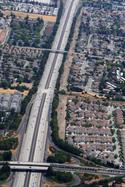The continual Illinois corruption scandals have created not only ignominy to the Land of Lincoln, but have now placed a negative ranking from Standard and Poor on its credit. If Illinois vies with other states for the title of most corrupt, it has plenty of company when it comes to financial disaster.
Although building for years, the impending collapse of state and municipal finance has been hastened by the growing financial crisis. read more »






















